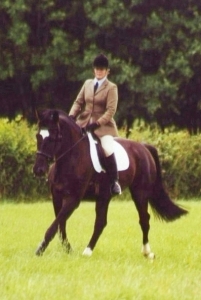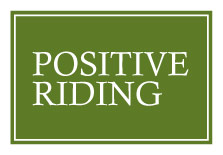Wobbling in your learning
 For Liz the relationship with Luca and unpicking his issues was a life lesson about riding and training horses. His ‘resistance’ turned out to be response to Wobbler syndrome and looking back there were a number of other signs too.
For Liz the relationship with Luca and unpicking his issues was a life lesson about riding and training horses. His ‘resistance’ turned out to be response to Wobbler syndrome and looking back there were a number of other signs too.
Even low level pain can affect a horse’s behaviour, and these changes can be the first sign of a veterinary issue. This led Liz to awareness of how common schooling techniques such as working in deep surfaces, excessive lunging, lack of road work and overuse of gadgets can cause significant long term impacts. Understanding the bio-mechanics of horse and rider, and riding with softness and suppleness in mind are key. Allowing the horse time to develop is also a key philosophy.
Old fashioned approaches of ‘sorting an horse out’ and riding through mis-behaviour can bring short term results, but may not help your horse stay sound or develop trust in the longer term. After all, horses simply don’t spend time plotting how to evade work and annoy the rider…
